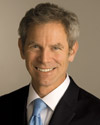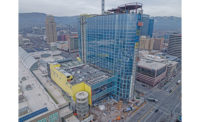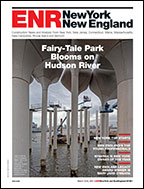Wise water use, higher density zoning, mass transit and even urban farming are all part of Salt Lake City�s code review aimed at removing obstacles to green practices and more environmentally conscious development.
Background: Salt Lake City mayor Ralph Becker entered office two years ago, pledging to continue reducing the city’s carbon footprint, an initiative launched by his predecessor Ross (Rocky) Anderson. Some of those changes included requiring new city-owned buildings to be constructed to LEED-Silver standards and the implementation of an on-line, paper-free plan submission and review process.
The Sustainable Code Revision Project began in 2008. City officials and Denver-based land-use consultants Clarion Associates began looking at a wide range of city ordinances that appeared to be restricting sustainable development. They solicited input from the public at large and from the construction community in particular. The group has completed two code reviews and is now at work on final proposals. Becker said he expects the city council will be taking action on the proposals in the spring.

BECKER
The following answers to questions from Mountain States Construction were provided by Salt Lake City Mayor Ralph Becker and the Director of Building Services for Salt Lake City, Orin Goff.
Question: What have been the greatest impacts of the code revision project on the building community so far?
Goff: There are some things we’ve already done like the plan review software we purchased two years ago. It allows builders to submit plans electronically and saves trips to City Hall and reams of paper, and that has been great for builders. I think we’ve also improved transparency in the plan-review process. Builders can get online updates on where they are in the process. We used to have six different departments involved in the review, but now it is all in one place. You access the process through an online portal and see how the process is moving.
Becker: When I came into office, people were so mad at the city. They said we were too slow or unreasonable, and while some of that is natural and you’ll always have some discontent, it was beyond that. Now I’d say that for every complaint I get from builders and others in the planning process, I get four compliments on how things have changed.
Q: What are some key points currently under review?
Becker: As part of this comprehensive approach, we are looking at changing density zoning around the city, and that means changes to our accessory dwelling ordinances. That is going on right now. We want to encourage greater variety of housing types, but we have to consider compatibility with the neighborhood. We’ve been inviting a lot of public comment. We have an Open City Hall program that is online and has a blog that is moderated so we can get a wide range of opinions and comments and have the benefit of those views as we work on new ordinances.
But we’ve looked at, or are looking at, a whole range of things from allowing solar panels to changes in allowable landscapes and allowing for white, reflective roofs on buildings. It has usually been the case that we need to remove obstacles in the code to permit certain things to be done and move us towards a more sustainable city.
Q: What effects do you see related to building codes?
Becker: Building codes are set by the state, so any changes there have to be done by the legislature. We have been and will continue to push for changes. The state has been very resistant to changes in the code, but we are going to keep up the fight to get changes we think will improve sustainable building in the city.
Q: Are there other cities you are looking at who have done similar things and where does Salt Lake City fit in as far as what cities are doing to encourage sustainable development?
Becker: Working with our consultants at Clarion, who have experience all over the country, we are finding we are really at the forefront of comprehensive and more broad based changes to codes.
Goff: We want to offer options to citizens. For a long time, we hung our hats on LEED standards. Now the International Building Council is coming out with standards, and we’d like to incorporate those but still have some regional flexibility.
For more information or to make comments about Salt Lake City’s Sustainable Code Revision Project, go to:www.slcgov.com/slcgreen/code/.



Post a comment to this article
Report Abusive Comment